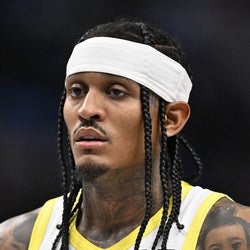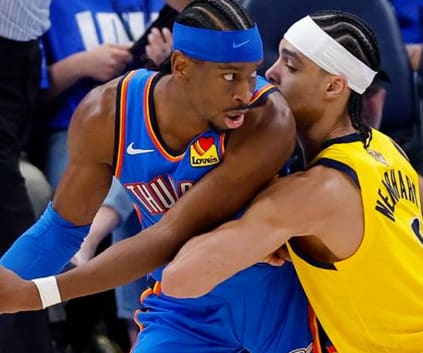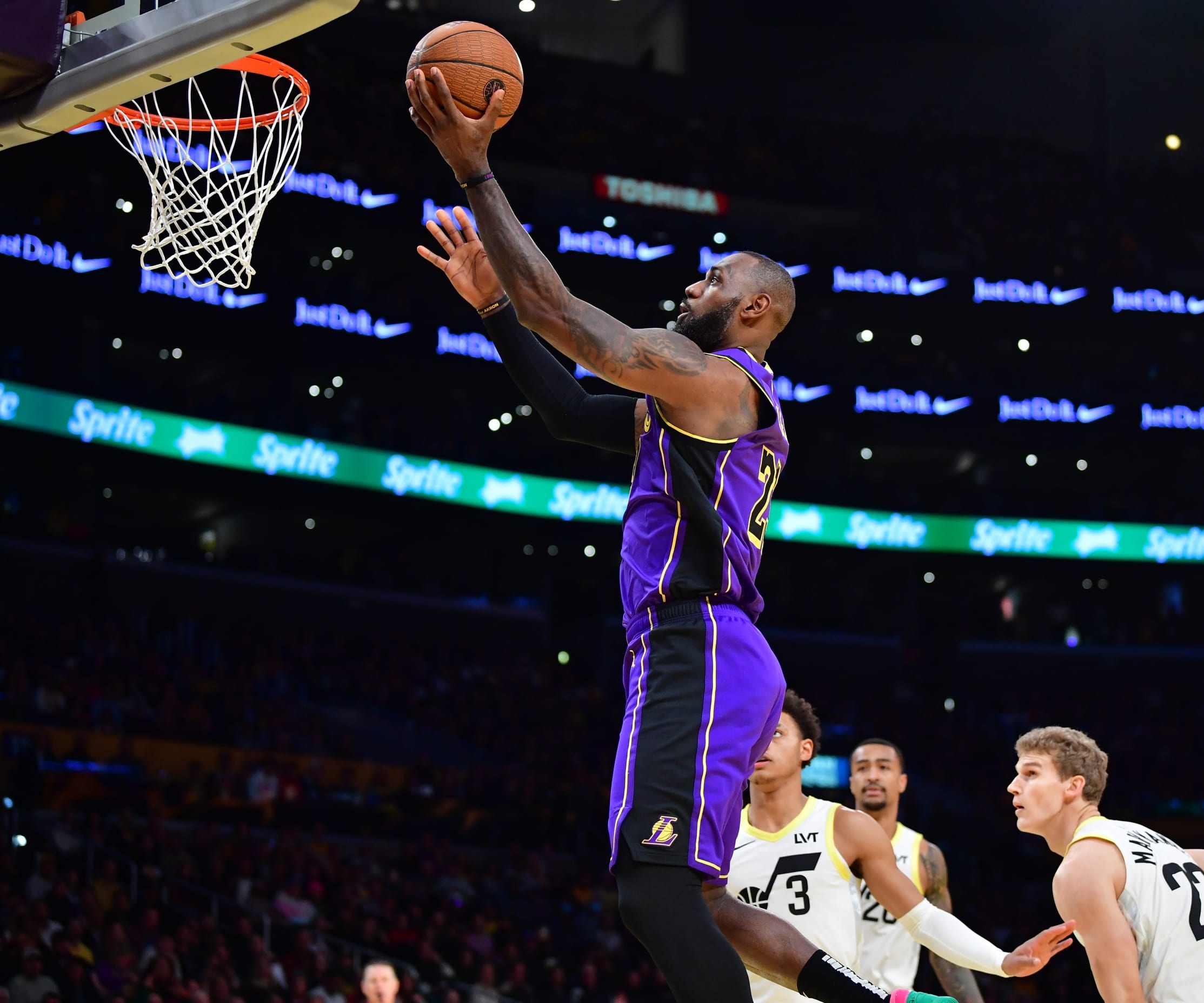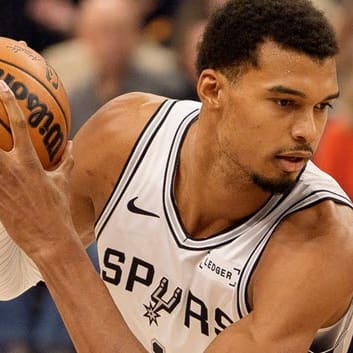2025 Stats
PTS
9.5
REB
1.8
AST
1.3
STL
0.5
BLK
0.1
ROS Projections
2025 Fantasy Outlook
Clarkson managed just 37 appearances during the 2024-25 season, both as a result of injury and the fact that the Jazz had nothing to play for. His playing time also fell to just 26.0 minutes per game, during which he averaged 16.2 points, 3.7 assists and 2.3 three-pointers. Unsurprisingly, the Jazz opted to part ways with the veteran, allowing him to sign with the Knicks on a one-year deal. While this is a positive aspect in terms of potential game contributions, Clarkson is likely to serve as a bench scorer and nothing more. His ability to create for himself will provide New York with some much-needed offensive depth, but his lack of defensive prowess will almost certainly restrict his time on the floor. Look for Clarkson to play a meaningful, yet subdued role, potentially topping out at around 27.0 minutes per contest. Read Past Outlooks
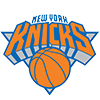
May be headed out of rotation
Clarkson played the final 12 minutes of Wednesday's 120-66 win over the Nets, finishing with three points (1-4 3Pt, 0-2 3Pt, 1-2 FT), three rebounds, two assists and one steal.
ANALYSIS
Though Clarkson did a decent job of filling up the box score during his time on the court, the fact that he didn't check into the game until the Knicks had built a 32-point lead at the start of the fourth quarter suggests he likely would have been out of the rotation had Wednesday's contest been more competitive. The garbage-time appearance came just two days after Clarkson had been limited to one two-minute shift at the end of the first quarter during the Knicks' 114-97 loss to the Mavericks before he stayed on the bench for the final three quarters. The recent return of Landry Shamet from an extended absence appears to have made Clarkson somewhat expendable on the Knicks' second unit, and the latter hasn't helped his case for maintaining a regular role by shooting 35.9 percent from the field and 24.3 percent from three-point range since the beginning of January.
Though Clarkson did a decent job of filling up the box score during his time on the court, the fact that he didn't check into the game until the Knicks had built a 32-point lead at the start of the fourth quarter suggests he likely would have been out of the rotation had Wednesday's contest been more competitive. The garbage-time appearance came just two days after Clarkson had been limited to one two-minute shift at the end of the first quarter during the Knicks' 114-97 loss to the Mavericks before he stayed on the bench for the final three quarters. The recent return of Landry Shamet from an extended absence appears to have made Clarkson somewhat expendable on the Knicks' second unit, and the latter hasn't helped his case for maintaining a regular role by shooting 35.9 percent from the field and 24.3 percent from three-point range since the beginning of January.
NBA Per Game Stats
Per Game
Total
Per 36
NBA Per Game Stats
Loading Per Game Stats...
2025 NBA Game Log
2025
2024
2023
2022
2021
2020
2019
2018
2017
2016
2025 NBA Per Game Split Stats
Schedule
By Month
Starting/Off Bench
Days Rest
Vs Opp
By Result
2025 NBA Per Game Split Stats
Loading Split Stats...
Advanced Stats
Loading Advanced Stats...
Stat Review
2025
2024
2023
2022
2021
2020
2019
2018
2017
2016
How does Jordan Clarkson compare to other players?
This section compares his stats with all players from the previous three seasons (minimum 200 minutes played)*. The bar represents the player's percentile rank. For example, if the bar is halfway across, then the player falls into the 50th percentile for that stat and it would be considered average.
True Shooting %
53.1%
Effective Field Goal %
50.4%
3-Point Attempt Rate
48.0%
Free Throw Rate
17.2%
Offensive Rebound %
4.3%
Defensive Rebound %
6.0%
Total Rebound %
5.1%
Assist %
9.5%
Steal %
1.1%
Block %
0.7%
Turnover %
9.4%
Usage %
21.6%
Fantasy Points Per Game
14.5
Fantasy Points Per Minute
0.7
NBA Historical Fantasy Stats
Historical ADP
Loading Historical ADP...
Knicks Depth Chart
Our full team depth charts are reserved for RotoWire subscribers.
Subscribe Now
Knicks Rotation: Minutes Breakdown
Loading Knicks Rotation Data...
Average Fantasy Points
Minutes
FanDuel
DraftKings
Yahoo
FantasyDraft
Head2Head
Sorare
Average Fantasy Points are determined when Jordan Clarkson was active vs. non-active during the season. Click here to view average fantasy points for a different time period.
Loading Average Minutes...
Past Fantasy Outlooks
2024
2023
2022
2021
2020
2019
2018
2017
2016
2015
2014
Clarkson has developed into one of the best bench players in the NBA over recent years, making himself a Sixth Man of the Year candidate every year. The veteran averaged 17.1 points, 3.4 rebounds, 5.0 assists, 0.6 assists and 1.7 threes per game last season. Most of those statistics dropped from previous years outside of the assists, and it's becoming clear that Utah wants him to be more of a playmaker than just a scorer. What also made the scoring drop off was his atrocious efficiency, shooting 41 percent from the field and 29 percent from three-point range. We have to assume his shooting numbers will creep back to career norms this year, and Clarkson could be asked to do even more. Utah didn't add much to this backcourt, and Clarkson will be one of the primary playmakers. Keyonte George and Collin Sexton are the only ones ahead of Clarkson, and we expect JC to get back to the 20-point scorer he was in years prior. If he could add that to the five assists a night, Clarkson could be one of the frontrunners for Sixth Man of the Year again. Considering this team is rebuilding, Clarkson could be one of the first players traded if Utah falls out of playoff contention. It's unlikely Clarkson sees an increased role anywhere else, but he's worth streaming as long as he has a key role in Utah.
More Fantasy News

Full stat line in loss
Clarkson finished with 11 points (5-11 FG, 1-4 3Pt), three rebounds, one assist, one block and two steals in 23 minutes during Wednesday's 112-101 loss to the Kings.
ANALYSIS
Subscribe now to instantly reveal our take on this news.
Subscribe now to instantly reveal our take on this news.

Scores 12 points off bench in win
Clarkson finished with 12 points (5-9 FG, 1-3 3Pt, 1-1 FT), three rebounds, two assists and one steal over 21 minutes during Wednesday's 123-111 victory over the Clippers.
ANALYSIS
Subscribe now to instantly reveal our take on this news.
Subscribe now to instantly reveal our take on this news.

Pops for 20 points
Clarkson finished with 20 points (8-17 FG, 4-6 3Pt), two rebounds and two assists over 24 minutes before fouling out of Wednesday's 134-132 loss to the Spurs.
ANALYSIS
Subscribe now to instantly reveal our take on this news.
Subscribe now to instantly reveal our take on this news.

Hits for season-high 25 in win
Clarkson had 25 points (9-17 FG, 5-10 3Pt, 2-2 FT), one rebound, two assists and three steals in 29 minutes off the bench during Thursday's 126-124 win over the Cavaliers.
ANALYSIS
Subscribe now to instantly reveal our take on this news.
Subscribe now to instantly reveal our take on this news.

Adds 18 points off bench
Clarkson finished Thursday's 114-113 victory over the Pacers with 18 points (6-12 FG, 5-9 3Pt, 1-1 FT), three rebounds, one assist and one steal across 29 minutes.
ANALYSIS
Subscribe now to instantly reveal our take on this news.
Subscribe now to instantly reveal our take on this news.
Latest Fantasy Rumors

Happy to play for contending team
Clarkson is motivated to play for a contending team again, according to Stefan Bondy of The New York Post. "That's something you chase. That's a different high, man, if you want to put it like that," he said. "The level of detail, every play matters."
ANALYSIS
Clarkson spent the last five-and-a-half years with the Jazz, but after Utah spent the past few seasons in rebuilding mode, Clarkson will have the chance to play for a contender once again. The veteran guard is expected to be a regular option off the bench for the Knicks while presumably seeing time at both guard spots.
Clarkson spent the last five-and-a-half years with the Jazz, but after Utah spent the past few seasons in rebuilding mode, Clarkson will have the chance to play for a contender once again. The veteran guard is expected to be a regular option off the bench for the Knicks while presumably seeing time at both guard spots.


